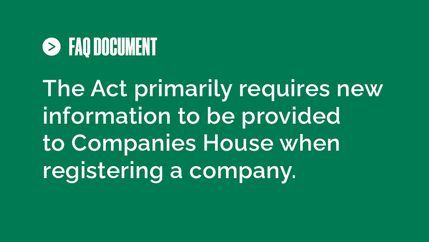
To allow agents and landlords to prepare for the Energy Efficiency (Private Rented Property) (Scotland) Regulations 2019, the Scottish Government has published guidance ahead of time.
Timeline
A minimum requirement of EPC E will be introduced for all new tenancies from 1 April 2020. All existing tenancies will fall under the rules by 31 March 2022.
The proposed timeline also details when privately rented properties will need to be an EPC D.
| Date | EPC Standard | Properties in scope |
|---|---|---|
| From 1 April 2020 | EPC E | Change in tenancy |
| By 31 March 2022 | EPC E | All tenancies |
| From 1 April 2022 | EPC D | Change in tenancy |
| By 31 March 2025 | EPC D | All tenancies |
Exemptions
The Guidance also outlines the proposed exemptions to the minimum energy efficiency requirements. These properties must be registered with the local authority, where they will be added to the local PRS Exemptions Register. Most exemptions will last for a period of five years.
Properties are exempt once registered if:
- All relevant energy efficiency improvements have been made
- Relevant improvements will cause damage to the fabric or structure of the property
- If there are protected species in the property that cannot be disturbed
- If the relevant improvements cannot be carried out on the property as it affects the listing or conservation status
- When the landlord plans to dispose of a property through demolition
- Access to carry out work has been refused or unreasonable conditions have been set by the tenant or a relevant third party
- The cost of completing the relevant improvements will exceed £5,000 to reach an EPC band E and an additional £5,000 to achieve a band D
Consent exemption
This applies where landlord has not been able to make energy efficiency improvements due to:
- If a tenant/third party is refusing consent or access;
- If a tenant/third party has granted consent or access but subject to a condition the landlord cannot comply with;
Under these circumstances, landlords will need to obtain a valid exemption from the local authority.
The exemption will last until the tenancy changes, or for a period of five years (whichever is soonest).
Cost cap exemption
This applies where to make energy efficiency improvements to meet minimum standards exceed:
- £5,000 to reach an EPC E from 1 April 2020 for new lets;
- £5,000 to reach an EPC E by 31 March 2022 for all PRS properties;
- An additional £5,000 to reach an EPC D from 1 April 2022 for new lets;
- An additional £5,000 to reach an EPC D by 31 March 2025 for all PRS properties.
Landlords will need to evidence that the cost exceeds £5,000 by supplying three quotes from different installers to the local authority.
Temporary exemptions in certain circumstances
This guidance states that this applies under particular circumstances. This could be changes to the landlord of the property or changes to the arrangement between the landlord and tenant.
Landlords should seek legal advice to clarify their eligibility and register the exemption with the local authority.
For example, a landlord purchases a property with a sitting tenant, the property is exempt for six months as it has been registered with the local authority.
Enforcement
Local authorities will be monitoring compliance of the Regulations. Landlords may be served with a compliance notice if the local authority believes that they have breached the minimum standards within the previous 12 months. Landlords will be required to evidence all relevant information. Failure to provide this information may result in the landlord being served with a penalty notice.
The penalties are:
- Landlord lets property not meeting minimum standards for less than three months - financial penalty not exceeding £2,000
- Landlord lets property not meeting minimum standards for three months or more - financial penalty not exceeding £4,000
- Landlord has registered false or misleading information on the PRS Exemptions Register - financial penalty not exceeding £1,000
- Failure to comply with a compliance notice - financial penalty not exceeding £2,000
All financial penalties are in addition to the publication penalty. Landlords have the right to appeal the decision of a penalty notice to the Sherriff Court.
What Propertymark is doing
In a recent response to the Energy Efficient Scotland consultation, Propertymark sought clarification from the Scottish Government on any proposed exemptions to the minimum requirements.
Propertymark members in Scotland were surveyed in June 2019 to encourage their input to our response.
Whilst we support improving the energy efficiency of Scotland’s homes, we are concerned that the timescales for the private rented sector beyond EPC E are unrealistic. We believe that there must be more incentive provided to landlords to make energy efficiency improvements and that the Scottish Government should focus on achieving a target of EPC E before considering further targets




